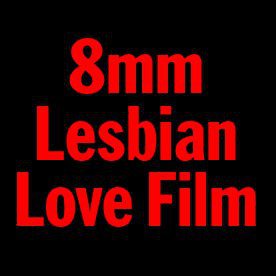Reproductive Labour
dal 7/2/2011 al 25/3/2011
Segnalato da
7/2/2011
Reproductive Labour
The Showroom, London
In the exhibition Cinenova's films, videos and paper materials will be worked on and displayed in a number of ways. A rare opportunity to watch and research pivotal works from the history of feminist, black, queer and experimental film and video, and together consider how they activate the present. Cinenova was founded in 1991 following the merger of two feminist film and video distributors, Circles and Cinema of Women.

Reproductive Labour is an exhibition that centres around the films, videos, politics and discussions that make up Cinenova – a volunteer-run, charitable organisation dedicated to preserving and distributing the work of women/feminist film and video makers.
In the exhibition Reproductive Labour, Cinenova’s films, videos and paper materials will be worked on and displayed in a number of ways. Invited selectors have nominated a work from the collection that will be featured daily (see The Showroom’s online calendar for more information and updates). Bringing these together with a series of screenings and events, this will be a rare opportunity to watch and research pivotal works from the history of feminist, black, queer and experimental film and video, and together consider how they activate the present.
Cinenova was founded in 1991 following the merger of two feminist film and video distributors, Circles and Cinema of Women. Each was formed in the early 1980s in response to the lack of recognition of women in the history of the moving image. Both organisations, although initially self-organised and unfunded, aimed to provide the means to support the production and distribution of women’s work in this area, and played critical roles in the creation of an independent and radical media.
Cinenova currently distributes over 500 titles that include experimental film, narrative feature films, artists’ film and video, documentary and educational videos made from the 1920s to the present. Cinenova holds a large collection of paper materials, books and posters related to works it distributes, and the history and politics of film and video production. The thematics in the work at Cinenova include oppositional histories, post-colonial struggles, domestic and care work, representation of gender and sexuality, and importantly, the relations and alliances between these different struggles.
Faced with closure since 2001, due to lack of funding, Cinenova has been run by volunteers dedicated to the constellation of films, histories and politics that make up Cinenova, believing in the necessity of keeping the collection together and autonomous, rather than dispersed into larger and more general archives or distributors. In 2009 these volunteers became a more formalised ‘working group’. Reproductive Labour, organised by the working group, intends to make public and urgent Cinenova’s actual situation with regard to its ability to preserve, promote and distribute the work in the collection.
Reproductive Labour presents the case of Cinenova as a site that gives rise to reflections on the desires and problematics that arise through collective cultural work, along with the practicalities and labour involved in maintaining such an organisation. These reflections have been crucial to the thinking of the exhibition, where we hope to make visible, and thereby transform, these processes.
Whilst our current landscape is vastly different to that of Cinenova’s beginnings - on the one hand the demise of the ‘new social movements’ especially the feminist movement; and on the other a revolution in media technologies – the continuous presence of Cinenova is a collective and critical project which intends to provide tools and meeting points in the present. The exhibition Reproductive Labour is informed and inspired by the content and structure of Cinenova and how it offers us an important angle on history.
EVENTS
Saturday March 12th
1-5pm: The Dialectics of Sex: a Reproduction
Shulamith Firestone's vision of a human future free of biological sex roles, with technology looking after reproduction, was a meeting between Marxism and radical feminism never again repeated. In this session, a group of readers and two writers will attempt to transcribe the entire book.
Coordinated by: Melissa Castagnetto, Elsa Richardson, Grace Schwindt and Marina Vishmidt
6pm: Screening of Shulie by Elisabeth Subrin
Saturday March 19th, 3-6pm
Lecture, screening and discussion on the signal's potential and the reciprocal action between the devices person, camera, speech and viewer hosted by Cecilia Wendt and Karolin Meunier.
Wednesday March 23rd, 6-8 pm
Broken Taboos & New Voices in Iran
A presentation and discussion with the filmmaker Kim Longinotto and the legal anthropologist Ziba Mir-Hosseini, moderated by the filmmaker Sandra Schäfer.
Kim Longinotto and Ziba Mir-Hosseini will show clips from their films
Divorce Iranian Style (1998) and Runaway (2001). They will reflect on the making of their films and their different perspectives, as well as the role of the camera within the shooting process. Further issues to be discussed are recent developments and changing gender relations in Iranian society, and the intimate links between sexuality and democracy. Ziba Mir-Hosseini will also speak about Muslim feminists who seek to transcend the opposition 'Islam' vs 'feminism'.
Saturday March 26th
3-6pm
Screening of Born in Flames (Lizzie Borden, USA, 1983, 90 mins), followed by the launch of Born In Flames publication by Kaisa Lassinaro
For press information and images please contact Natasha Tebbs on:
T: 020 7724 4300 E: natasha@theshowroom.org
This project is supported by Arts Council England and The Showroom Supporters Scheme, and the additional generosity of Cinenova's supporters.
Preview: 8 February, 6.30-8.30pm
The showroom (new location)
63, Penfold Street, London
Opening hours: Wednesday – Saturday, 12-6pm
free admission



